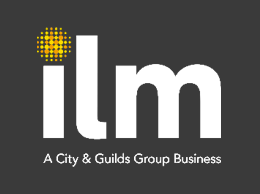In recent years, the concept of neurodiversity has gained significant traction in the business world. But what exactly is neurodiversity, and why should organisations pay attention to it?
Neurodiversity refers to the natural variation in human brain function and behavioural traits. It encompasses conditions such as autism, ADHD, dyslexia, and others. Rather than viewing these neurological differences as deficits, the neurodiversity paradigm recognises them as valuable aspects of human diversity.
For businesses, embracing neurodiversity can lead to numerous benefits. Neurodiverse individuals often possess unique skills and perspectives that can drive innovation and problem-solving. For instance, many autistic individuals excel at pattern recognition and attention to detail, while those with ADHD may demonstrate exceptional creativity and out-of-the-box thinking.
However, traditional workplace structures and practices often fail to accommodate neurodivergent employees, leading to missed opportunities and untapped potential. To create a truly inclusive environment, organisations must take proactive steps to support neurodiversity.
Here are some key strategies for fostering neurodiversity in the workplace:
- Rethink recruitment practices: Traditional interview processes may disadvantage neurodiverse candidates. Consider alternative assessment methods, such as work trials or skill-based tests, to evaluate candidates’ abilities more accurately.
- Provide tailored accommodations: Neurodiverse employees may benefit from specific workplace adjustments. This could include providing noise-cancelling headphones, offering flexible work hours, or allowing for regular breaks.
- Educate staff: Conduct awareness training to help neurotypical employees understand and appreciate neurodiversity. This can foster a more inclusive culture and reduce stigma.
- Create sensory-friendly spaces: Design quiet areas or sensory rooms where employees can retreat if they feel overwhelmed.
- Offer clear communication: Provide instructions and feedback in straightforward, unambiguous language. This benefits not only neurodiverse employees but can improve communication across the entire organisation.
- Implement mentoring programmes: Pair neurodiverse employees with mentors who can provide support and guidance in navigating the workplace.
- Focus on strengths: Identify and leverage the unique strengths of neurodiverse employees, assigning tasks that align with their abilities and interests.
Several leading companies have already recognised the value of neurodiversity. However, it’s crucial to remember that neurodiversity initiatives should not be viewed as acts of charity. Rather, they are strategic business decisions that can lead to a more diverse, innovative, and productive workforce.
Moreover, embracing neurodiversity aligns with the broader push for diversity and inclusion in the workplace. Just as organisations have recognised the importance of gender and racial diversity, neurodiversity represents another crucial dimension of a truly inclusive environment.
As we move forward, it’s clear that organisations that fail to embrace neurodiversity risk falling behind. By creating workplaces that welcome and support neurodivergent individuals, businesses can tap into a wealth of talent, foster innovation, and build more inclusive cultures.
As more organisations recognise the value of neurodiversity, we can look forward to a future where all minds are welcomed. Futureproofs Neurodiversity in the workplace workshop will help delegates gain a deeper insight into what it is like to live with neurodiverse conditions and how businesses can support those affected. Please email info@futureproof-training.co.uk for more information.






